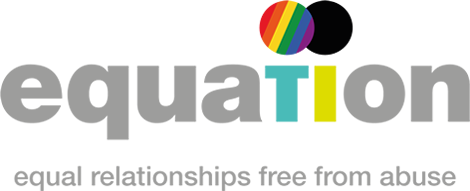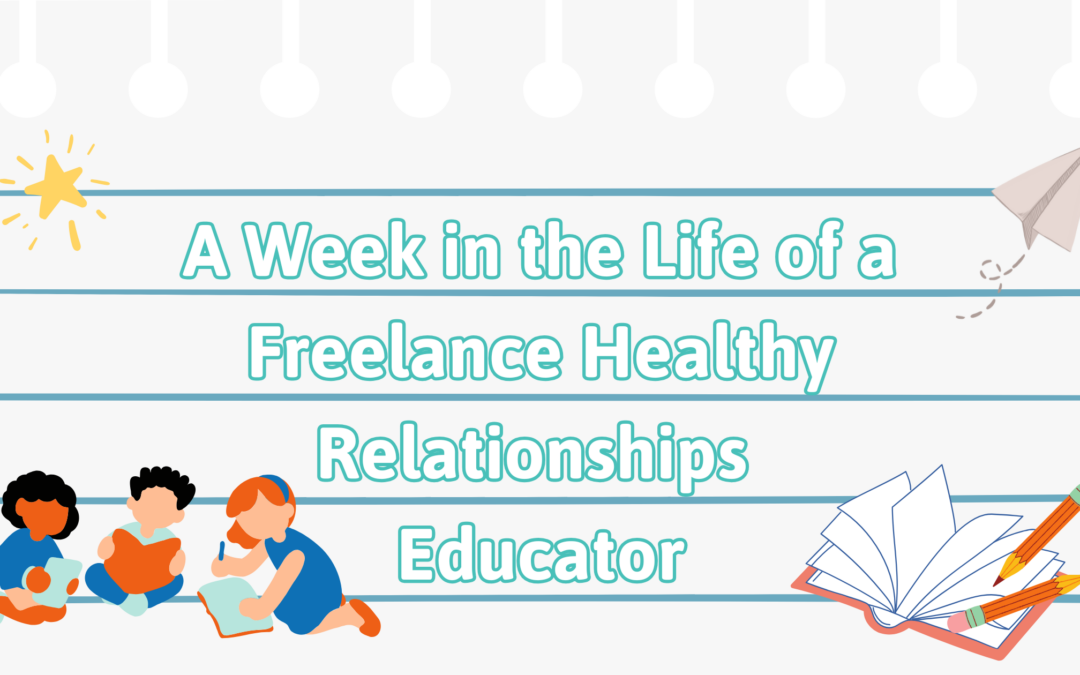Delivering sessions for Equation is always a dynamic experience, and the week begins with a bit of prep. The week before each round of sessions, I head into the office in the City to gather all the materials I’ll need for my upcoming projects. I double-check my handbooks, grab the evaluation sheets, and sign everything out. Then, I pack it all up into my big purple Equation bag and head to my car, ready for the week ahead.
A couple of days before I’m scheduled to deliver the sessions, I check my SLA on OneDrive to find out who my co-facilitator will be. I reach out to touch base, discuss who’ll be delivering which sections, and talk through any challenges we might encounter. Since I’m the lead facilitator, it’s my job to make sure my co-facilitator feels confident about their part and to iron out any logistical details—like where to park, when breaks are, and, of course, whether or not we need to bring our own coffee (super important!).
Monday: Targeted Projects (Choices & Know More)
Monday is a full-on day of delivering targeted projects at an inner-city secondary school. I’m working with two groups: the first session, Choices, with nine Year 10 boys, and the second, Know More, with eleven Year 9 girls. We’re in Week 2 of our eight-week intervention project, so today, we’re tackling some pretty important topics.
With the boys, we focus on making positive choices. We explore how the decisions we make every day can have consequences—both good and bad. We use role-play to demonstrate different scenarios, showing how a single choice can impact not only ourselves but also those around us. At the end of the session, one of the boys thanks me and says that the session helped him see how his choices affect others. It’s always great to hear feedback like that!
After the break, we move on to the girls’ session, where the focus is on the pressures young women face in society. We discuss body image, societal expectations, and discrimination. The girls are tasked with creating collages using old magazines—one collage depicting societal pressures on women, and another showing how women really can be and look. It’s incredible to see the students gain confidence as they share their thoughts with the group.
Once both sessions are wrapped up, my co-facilitator and I quickly debrief, filling out the online debrief form and discuss any learnings we’ve found from the session head of next weeks.
Tuesday: Primary School (The GREAT Project)
Tuesday brings a change of pace: I’m at a primary school delivering Session 2 of The GREAT Project to a Year 6 class. This session is all about understanding unhealthy relationships and introducing the concept of domestic abuse. We break down four types of abuse—physical, emotional, financial, and sexual—using age-appropriate language and activities. The goal is to help the children understand the signs of abuse, the importance of healthy relationships, and the support services available to them.
The class watches an animated video about domestic abuse and sees how it can affect families, always emphasizing the importance of seeking help from safe adults or services. One of the activities we do is teach the children hand gestures to remember the Childline number. It’s always a highlight, and I’ve had students even remember the gestures years later when I’ve delivered the same session to them in secondary school!
Wednesday: Secondary School (Equate)
By Wednesday, I’m back in secondary school, delivering one of Equation’s Equate sessions, Respect Not Fear, to Year 8 students. This 1-hour session explores how abusive behaviours can manifest in teenage relationships. We break down the types of abuse, discuss the gradual nature of emotional abuse, and watch an animated video that helps students identify how subtle emotional abuse can be, introducing them to language such as coercive control, love-bombing and gaslighting.
We also explore the excuses people make for abusive behaviour and emphasise that abuse is a choice—people can make a different choice with the right support. Over the course of the day, my co-facilitator and I deliver the session five times to different groups of about 30 students each. By the end of the day, we’ve reached the entire Year 8 cohort, which is always rewarding. Every group asks different questions, and it’s great to see them engage in conversations about healthy relationships.
At the end of the day, we debrief and head back to the office to drop off our used resources and the completed evaluation forms. It’s always satisfying to read the positive feedback—knowing that, in just an hour, we’ve made a real impact on these young people’s understanding of relationships.
Thursday & Friday: Flexibility of Freelance Work
Thursday and Friday aren’t Equation days for me; I’m off working on a freelance project doing similar work for other organisations. Freelancing offers a lot of flexibility, but it also requires me to juggle multiple clients and deliverables. Fortunately, Equation’s support for freelancers, including social gatherings and training sessions, helps me feel connected to a wider team. Even though I’m self-employed, it’s nice to know that I have a support network that shares the same mission and values.
One of the best things about working at Equation is the variety. Every week is different, and each session brings new challenges and opportunities to learn. And I’m already looking forward to next week’s sessions, where I’ll get to connect with another set of young people and help support them to have healthy, happy relationships with others, and themselves.
Work for Us:
Is it abuse
Not sure if what you're experiencing is abuse?
Get help
Stalking advisory service
Find out more.
How you can help
No matter how much time, money or resources you can afford to give, your support will make a difference.
£10
Give monthly
Could pay for four children
to take part in our early intervention projects
£30
Give once
Could pay for one primary school child to receive our healthy relationship education program
Support equation
Check out the other ways you can support us

